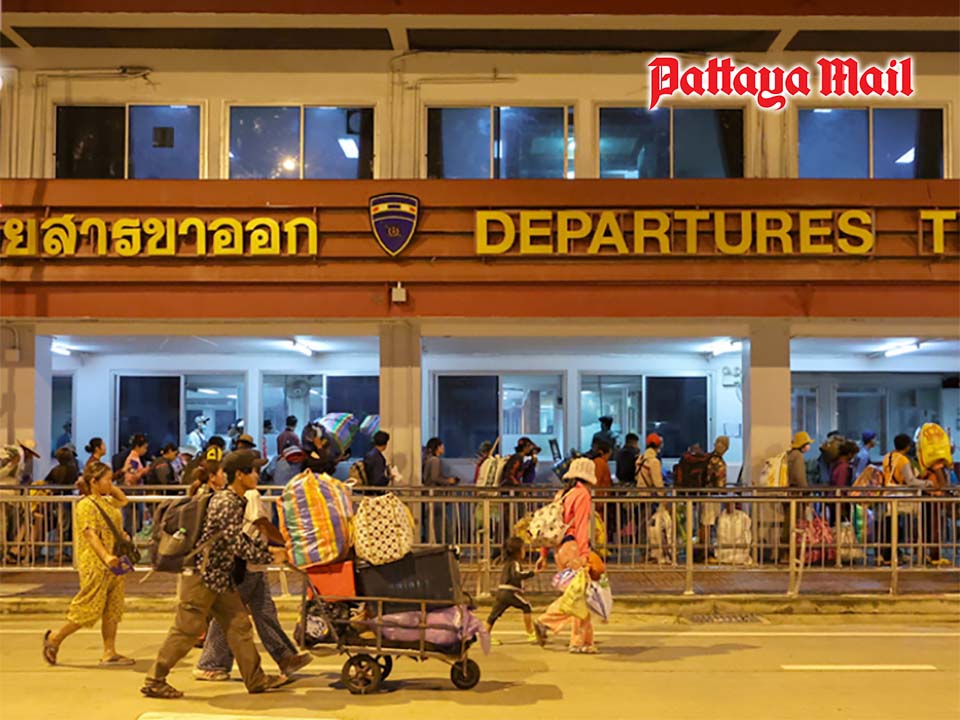Pattaya’s wage and benefits hold migrant workers despite border clashes
Cambodian laborers stay in Thailand for higher pay, social security, and schooling, while favoring construction over service jobs in Bangkok and Pattaya, says Thai Restaurant Association.
PATTAYA, Thailand – The ongoing border clashes between Thailand and Cambodia have caused many Cambodian migrant workers to rush back home amid safety concerns and rising fear fueled by social media. However, the Thai manufacturing sector continues to operate without major disruption thanks to wage and benefit packages that still attract some foreign laborers to stay.
Dr. Thanit Sorat, Vice President of the Thai Employers’ Confederation, highlighted that Thailand employs about 3.8 million foreign workers, with Cambodians officially registered numbering over 500,000—approximately 16%—not including an additional 300,000 undocumented workers. Cambodians are the second-largest group after Myanmar workers, who make up around 80%, while Lao workers are the smallest group at about 280,000. Despite the tense border situation and calls from Cambodian authorities urging workers to return home for safety, many migrant laborers prefer to remain in Thailand due to better wages and benefits.
Cambodian workers legally employed in Thailand can earn daily wages between 300 and 400 baht, potentially reaching over 10,000 baht monthly—significantly higher than the average 7,000 baht earned back home in Cambodia. More importantly, migrant workers in Thailand benefit from social security coverage, healthcare access, and schooling opportunities for their children, which remain powerful incentives to stay.
Most Cambodian workers returning home tend to be those in informal sectors like agriculture and fishing, while many employed in industries such as footwear manufacturing and food processing continue to work, as these jobs are less favored by local Thais.
Thaniwan Kulmongkol, President of the Thai Restaurant Association, added that many Cambodian workers find employment in restaurants near tourist areas, especially in Pattaya and on islands. Although some businesses have yet to feel a significant impact from labor shortages, the current low tourist season has allowed for natural staff reductions in some establishments. In Bangkok, Myanmar workers dominate the restaurant labor force, as Cambodian workers tend to avoid service jobs and prefer construction roles.
While some factories express concerns, many operators affirm that “Thailand remains safe,” and locals understand the conflict is political rather than social. Still, if the border clashes persist, Thailand risks a shortage of skilled labor in critical sectors such as construction, agriculture, fisheries, and livestock—where Cambodian workers number over 100,000.
Experts urge the Thai government to rethink labor policies, tighten migrant worker screening, and accelerate investment in machinery and technology to reduce long-term dependence on foreign labor. Proposals include tax exemptions on imported machinery without BOI approval and establishing technology support funds to transition Thai industries from low-cost labor dependence.
Recent minimum wage hikes to 400 baht daily in Bangkok and several provinces have raised concerns among business owners, particularly in the hospitality sector, who see the move as abrupt and disconnected from inflation or economic conditions.
Despite these challenges, many restaurant operators and manufacturers report no immediate impact on production or service, as alternative labor sources like Myanmar workers and Thai nationals fill gaps. However, the returning migrant wave is a clear signal that Thailand’s economic structure remains vulnerable due to heavy reliance on foreign labor.



